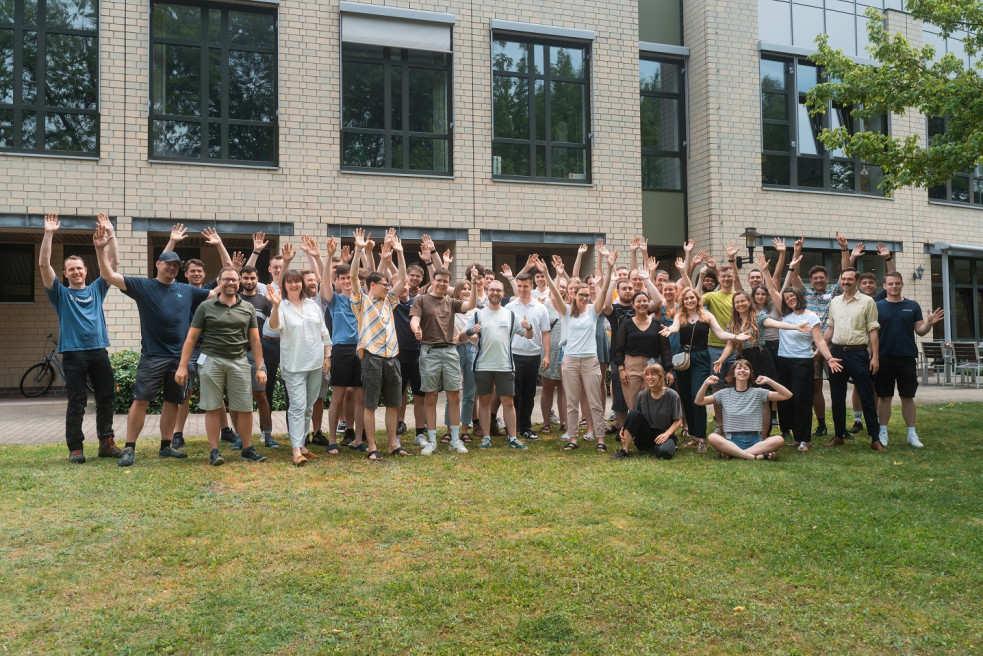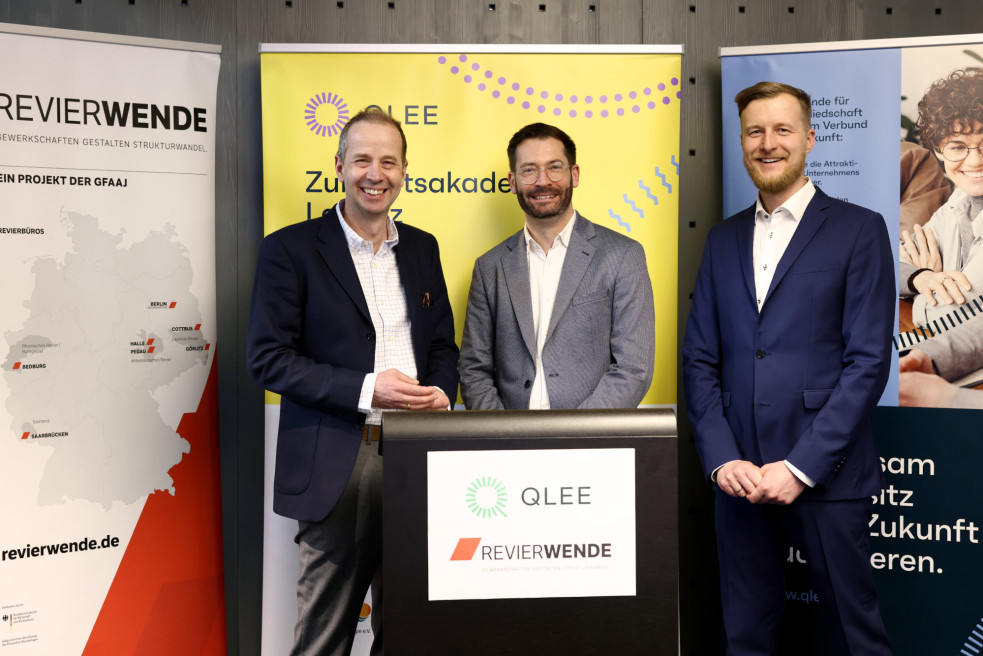Lusatia Future Academy enters its second round - young people discover the energy region

Berlin, 8 July 2024: Today until 12 July 2024, the Lusatia Future Academy is taking place for the second time at the LEAG Conference Centre in Lübbenau. 50 young people aged 18-27 from Berlin, Saxony and Brandenburg will get to know the energy region better. The aim is to strengthen participation and reduce the existing lack of information. The event is being organised by the Qualification Network for Renewable Energies in Lusatia (QLEE) and the DGB project REVIERWENDE.
The aim of the event is to give participants a deeper understanding of the current challenges and opportunities facing Lusatia during the structural change. The agenda includes a varied programme of workshops, discussions and excursions on topics such as the energy transition, sustainability and youth participation. Participants will have the opportunity to exchange ideas with experts from politics, business and civil society and develop their own ideas for the region.
A recent, non-representative survey by REVIERWENDE shows how important the transfer of knowledge and participation of young people from the region is. A large proportion of respondents feel poorly informed about the transformation, but consider the region to be fundamentally attractive and would like to help shape it - if they are approached. The survey is to be continued in the coming years in order to capture sentiment and measure developments.
Wolfram Axthelm, BEE Managing Director: "The installed renewable energy capacity per capita in the eastern federal states is twice as high as in the rest of Germany. Together with a well-developed electricity and gas infrastructure, the east is a strong driving force behind the energy transition. This also includes Lusatia, which was, is and will remain an energy centre. The region has excellent chances of becoming the spearhead of the energy transition. Thanks to renewables, not only can regional value creation be strengthened, but future-proof jobs can also be created. This development is being driven forward by the Lusatia Future Academy, which is also working to reduce the existing information deficit and encourage young people to get involved."
Thorsten Kramer, LEAG CEO: "Lusatia is undergoing an unprecedented transformation process from a coal-mining region to the largest centre of renewable power generation in Germany in the future. LEAG alone will connect up to 14 gigawatts of renewable power generation to the grid by 2040, including 7 gigawatts by 2030. The structural change poses major challenges for many companies in the energy sector. The need for well-qualified specialists has never been greater and has never been so crucial to the success of the energy transition in Germany. We can only encourage young people: Take advantage of this unique opportunity for your professional future and help build the secure and sustainable energy supply of tomorrow! The Future Academy offers a good orientation for this."
Marko Schmidt, REVIERWENDE, Team Leader Lusatia: "The energy transition and the associated structural change are tasks for several generations. However, our youth survey with more than a thousand young people clearly shows that young Lusatians feel that they are not involved enough in the process and 90 per cent do not feel informed. More than a third of those surveyed want to stay in Lusatia, while 40 per cent are still undecided. In contrast, the Future Academy is a positive lighthouse project to show young people the opportunities of the region, to involve them in the issues of the energy transition and to inspire them to live in Lusatia."
Cornelius Busse, student at BTU Cottbus-Senftenberg: "I am delighted to be part of the Future Academy as I am interested in renewable energies and structural change and would like to network with like-minded people. With my knowledge of civil engineering, I would like to participate productively in the discussions and contribute my ideas. I would also like to gain an insight into current projects and plans at regional companies and find out about the latest technology. As part of my family comes from Lusatia, it is important to me that the region copes well with structural change. In my eyes, the current projects and new settlements in the region are a sign that this will succeed."
Background: QLEE - Qualification Network for Renewable Energies in Lusatia
The Qualification Network for Renewable Energies in Lusatia (QLEE) is a project that provides companies and employees in the lignite region with new economic prospects through competent training programmes in new technologies. The initiators are the company LEAG, the Institut für betriebliche Bildungsforschung (IBBF) and the Bundesverband Erneu-erbare Energie e.V. (BEE). The project is geared towards the changing needs of the regional economy during structural change and contributes to the development and retention of skilled workers in Lusatia. At the end of 2021, the joint project received funding approval from the German government's STARK programme, which funds projects that support the transformation process towards an ecologically, economically and socially sustainable economic structure in the coal regions.
REVIERWENDE - Trade unions shape structural change
The REVIERWENDE project, initiated by the German Trade Union Confederation (DGB), acts as an active companion and organiser of the ongoing structural change from the perspective of the employees. The main pillars of this project include the creation of networks, counselling services and qualification measures. The central objectives are the preservation and promotion of good work as well as the integration and realisation of the ideas of employees from the area.
ideas of employees from the area. The primary fields of action also include identifying potential and opportunities in the course of this transformation process, particularly with regard to the younger generation.
08.07.2024
